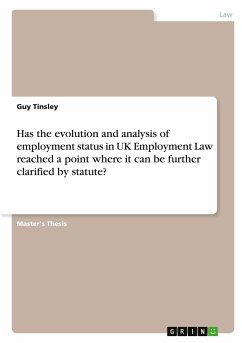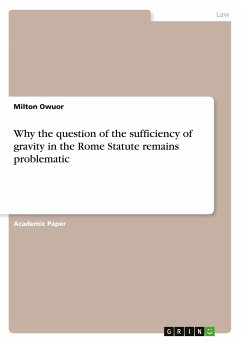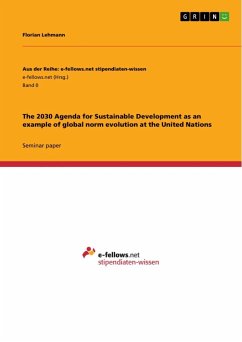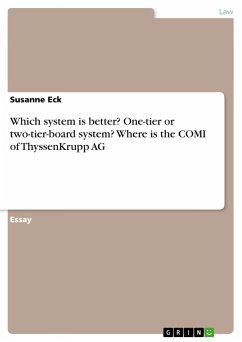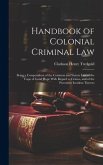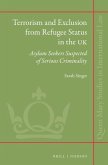Master's Thesis from the year 2020 in the subject Law - Comparative Legal Systems, Comparative Law, grade: Distinction, Nottingham Trent University (Nottingham Law School), course: LLM - Master of Laws - Employment Law (UK), language: English, abstract: Establishing an individual's employment status is often the foremost requirement of any claim in employment law. Different rights are afforded in statute by different statuses. In seeking any right through an Employment Tribunal ("ET"), the Tribunal must first establish whether an individual's employment status affords them that right in law.Employees are entitled to the greatest number, and quality, of rights in UK Employment law. Workers enjoy a more limited number of rights, but often greater flexibility and freedoms than employees. The self-employed carry their own risks, have very few rights provided by those they provide services to, but do enjoy absolute independence. ET's are available to employees and workers only for the settlement of disputes relating to rights. The self-employed cannot proceed a claim within an ET.Initially, primary legislation allows for some broad definitions of different worker statuses. However, the dividing lines are often blurred, or even missed, depending on which body is assessing the status and for what reason. Currently, employment status in the UK falls into a tripartite system of Employees, "Workers" and the Self-employed "Independent Contractor". Primary (and secondary) legislation have gone same way to defining status, but as is often the case, further clarity has often been provided by Common Law.
Hinweis: Dieser Artikel kann nur an eine deutsche Lieferadresse ausgeliefert werden.
Hinweis: Dieser Artikel kann nur an eine deutsche Lieferadresse ausgeliefert werden.

